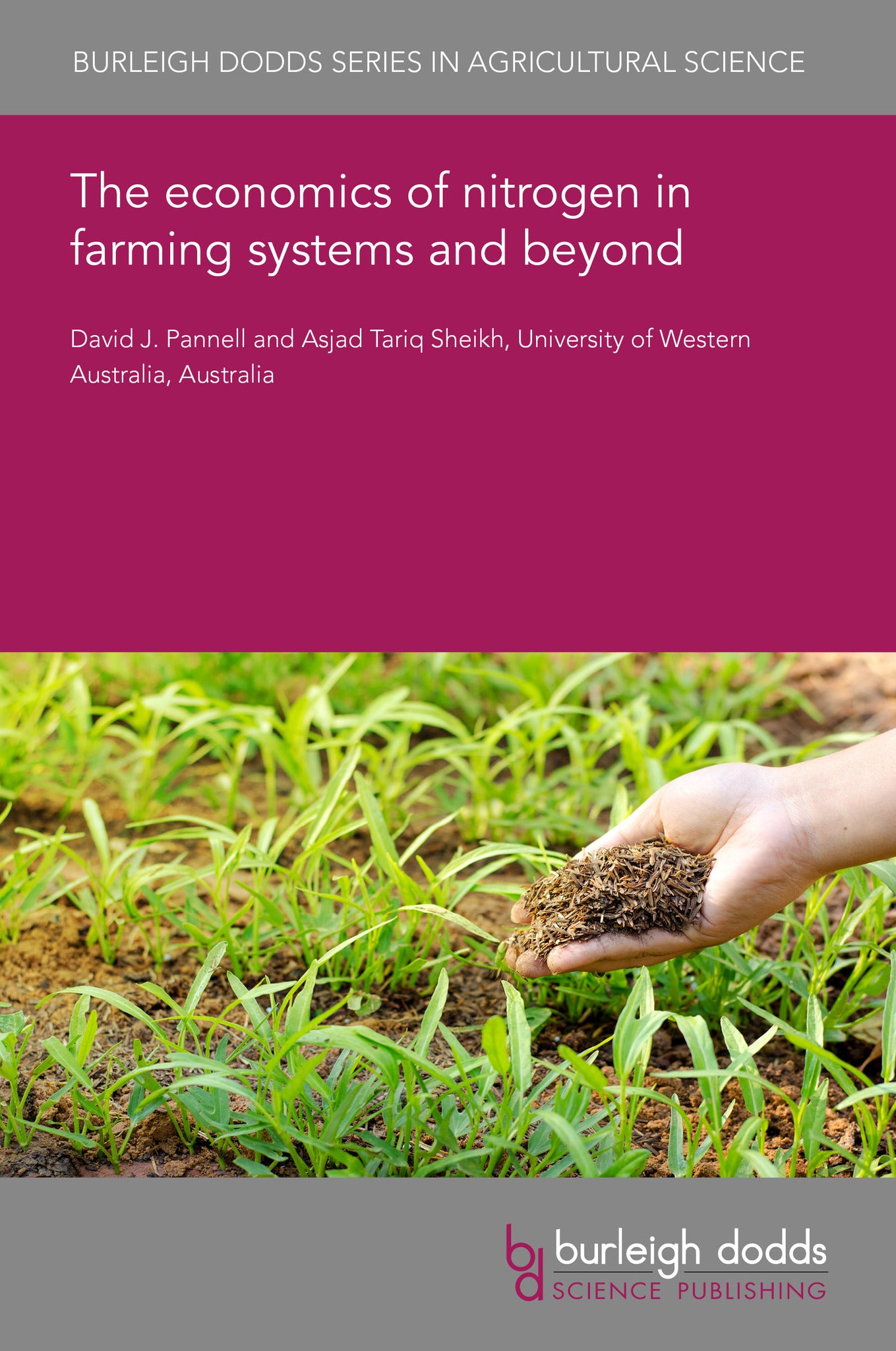We're sorry. An error has occurred
Please cancel or retry.
The economics of nitrogen in farming systems and beyond

Some error occured while loading the Quick View. Please close the Quick View and try reloading the page.
Couldn't load pickup availability
- Format:
-
14 March 2024

Nitrogen fertilizer is a key factor determining the physical and economic productivity of agriculture. Decisions about nitrogen involve various economic considerations, at the farm, regional or national level. Beyond the farm level, the economics of nitrogen are important in designing policies to limit off-farm impacts of nitrogen fertilizer use, such as water pollution and greenhouse gas emissions. This chapter explores the large and diverse literature on the economics of nitrogen in agriculture and the economics of off-farm impacts from nitrogen fertilisation. Issues covered include: the economics of nitrogen as an input to production; nitrogen and economic risk at the farm level; the economics of nitrogen fixation by legumes; the existence of flat payoff functions, which often allow flexibility in decisions about nitrogen fertilizer rates; explanations for over-application of nitrogen fertilizers by some farmers; the market for nitrogen fertilizer; and the economics of nitrogen pollution.

TECHNOLOGY & ENGINEERING / Agriculture / Sustainable Agriculture, Agronomy and crop production, TECHNOLOGY & ENGINEERING / Agriculture / Agronomy / Crop Science, SCIENCE / Environmental Science, Sustainability, Sustainable agriculture, Agricultural science

- 1 Introduction
- 2 Economics of nitrogen as an input to production
- 3 Nitrogen and economic risk
- 4 Economics of nitrogen fixation from legumes
- 5 Flat pay-off functions
- 6 Over-application of nitrogen fertilisers
- 7 Nitrogen pollution
- 8 Nitrogen research, development and extension
- 9 The market for nitrogen fertiliser
- 10 Conclusion
- 11 References



